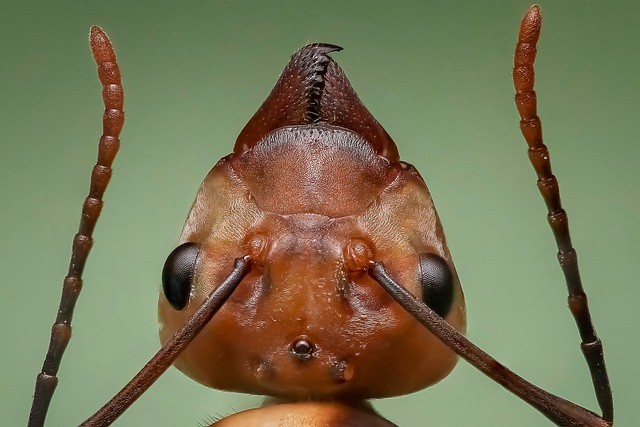Ants, being a significant part of the arthropod diversity, possess the ability to sting, which serves as a crucial defense mechanism for their survival. These seemingly minor annoyances for humans during picnics actually play a vital role in the ants' lives, protecting them from potential threats. The potency of ant bites raises the question of how such small creatures can deliver such intense discomfort.

Ant Bites or Ant Stings?
Ants are incredibly diverse and captivating creatures, which have over 15,000 known species. According to ZME Science, each ant species possesses distinct characteristics, habitats, and behaviors, including the ability to bite. While ant bites are generally not a cause for concern, it is wise to be mindful of their presence.
Moreover, these remarkable creatures are adept at employing clever strategies for defense. Many ants possess formidable jaws, known as mandibles, capable of breaking through human skin.
In addition, some ants are equipped with stingers, allowing them to deliver venomous stings. Thus, what people often perceive as "ant bites" may actually be ant stings, highlighting the diverse range of defensive mechanisms employed by ants.
Belonging to the Hymenoptera insect order, alongside bees and wasps, ants exhibit significant diversity. Certain ant species have evolved to fly, as ZME Science previously reported, while others have lost this ability.
Furthermore, their defense mechanisms can vary greatly, with some species relying on biting, others utilizing stingers, and some employing entirely unique methods of protection.
Although ant mandibles are versatile tools used for gripping and biting, it is important to note that most of these insects do not bite humans. Stinging is more prevalent among ants, with approximately 71% of ant species possessing this ability.
The sensation of an ant sting, particularly from notorious fire ants, can be memorably unpleasant, akin to a tiny spark of fire or an electric jolt coursing through the skin. Fire ants, in particular, can pose a significant problem due to their potent stings.
With their diverse characteristics and behaviors, understanding the nature of ant bites and stings provides a deeper appreciation for the complexity and adaptability of these fascinating creatures.
Ants Bite When There Is a Threat
Ants are typically peaceful creatures living in colonies and usually will not harm or disturb humans unless they feel threatened. But why do ants bite?
As per the Miller Pest & Termite website, ants bite because they perceive a threat in their surroundings. Ants often respond with a distinct bite or sting, setting them apart from other insects.
However, it is important to note that these bites can vary in their level of danger and toxicity depending on the ant species. While the stings of red ants may not pose significant issues, the stings of fire ants can cause intense pain and distress.
So, what are the symptoms of ant stings? As per the pest killer website, symptoms may sometimes be unnoticeable. However, a burning sensation might still be felt at the location of the infection. Burning, redness, and swelling are the most common ant bite symptoms.
Using a cold compress is an effective method to alleviate ant bites overnight because it reduces inflammation, itching, and swelling while numbing the pain. But if it is a severe allergic reaction, it is best to seek immediate medical assistance.
RELATED ARTICLE:
About 20 Quadrillion Ants are Crawling on Earth Based on New Estimates
Check out more news and information on Ants in Science Times.










